Thinking outside the bus
Updated: 2014-11-03 16:34
By Bai Ping(China Daily USA)
|
||||||||
To decide how to get around in Beijing requires weighing cost and convenience. A traditional bus measures up well in both criteria.
Since last year I've given up driving and taken the bus to work every day, which has aroused quite a bit of curiosity among colleagues because bus riding is still a rarity in my office.
My easy explanation about the change is that after navigating the streets in one of the most congested capitals in the world for more than a decade, I'm tired of driving, and taking the bus allows me to think before my work starts. I also like to be given a ride home after a long, rough day.
But most of my colleagues, especially the younger ones who aspire to own a car, have responded with disbelief, as they picture me walking to the bus stop under smoggy skies, stuck in a packed, rumbling bus and constantly leery of jostling, bad breath, loud talking on cellphones and dirty shopping bags.
I believe they would be amused if they read the findings of a study of British workers, which found that commuting by bus or train has "the beneficial effects of being physically active, as most journeys will involve walking to the station or stop but also include time to read or talk to friends while traveling", according to recent British media reports.
Perhaps everybody would be more convinced if I told them that I take the bus because it's dirt cheap, while driving a car is expensive and inconvenient.
A bus trip costs 0.4 yuan or 6-7 cents with the use of a stored value card, which is almost free if you consider a Coke costs five times that or more. Beijing has a flat-rate subway fare with unlimited transfers of 2 yuan per single-trip ticket. I would take the more comfortable subway, if it was closer to my home and workplace.
In comparison, the costs of petrol and parking have risen to such levels that some drivers are forced to seek other modes of transportation. As a way to discipline drivers' behavior, the city has introduced a tough demerit point system for traffic violations, mainly through surveillance cameras on roads.
It's no secret that many drivers "borrow" points from friends or family members to clear offenses before they pass the compulsory annual vehicle inspection. This has also spawned a prosperous business of engaging agents to buy and sell points.
But wait, isn't it true that a driver stands to lose more if he or she lets the car sit idle? Here is the fallacy of owning a car everywhere: We tend to ignore the costs of purchase, maintenance, insurance and depreciation. Only daily expenses and experience matter. So drivers like me may find it more economical to take the bus or subway. This has also spelled out a better future for the public transport system, despite a booming car population in China.
While the city's huge fleet of buses becomes bigger and newer, the ground transit still carries the stigma of being inefficient and uncomfortable. Status-conscious residents prefer to shun buses that are generally perceived to be for poor, older people or migrant workers.
Statistics show that last year, while the number of passengers taking the subway soared by almost four times from 2007, bus ridership rose only 14.4 percent. One key aim for a proposed steep hike in subway fares is to direct more passengers to the bus system, which will only increase its fare modestly.
But experts predict that many converts will return to the subway if the bus services don't improve soon and passengers become more courteous.
The task for the bus system to woo more riders to give up driving has become ever more urgent as it's part of the city's strategy to battle the worsening air pollution.
I'll continue to ride the bus to work because I've gotten used to the bumpy ride. Even with the imminent price hike, taking the bus is still much, much cheaper than driving a car.
But I doubt many others will take the same plunge, probably because they feel they're just too good for the bus.
Contact the writer at dr.baiping@hotmail.com
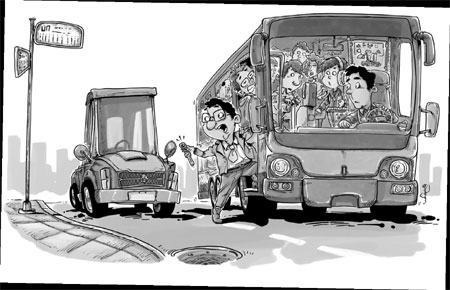
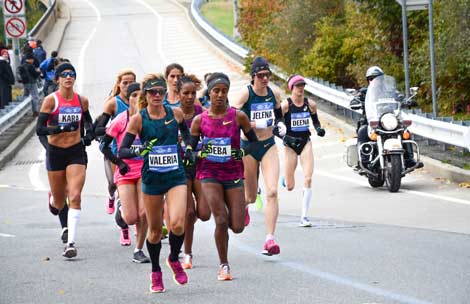
 NYC marathon held in chilly, windy weather
NYC marathon held in chilly, windy weather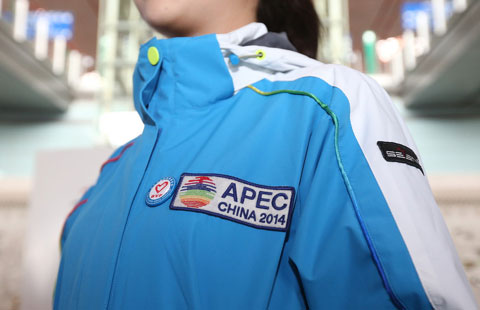
 Volunteers aim high for APEC
Volunteers aim high for APEC
 Sports moments of the week (Oct 27 - Nov 2)
Sports moments of the week (Oct 27 - Nov 2)
 Zhuangyuan museum in Suzhou to open
Zhuangyuan museum in Suzhou to open
 Top 10 most visited video streaming sites in China
Top 10 most visited video streaming sites in China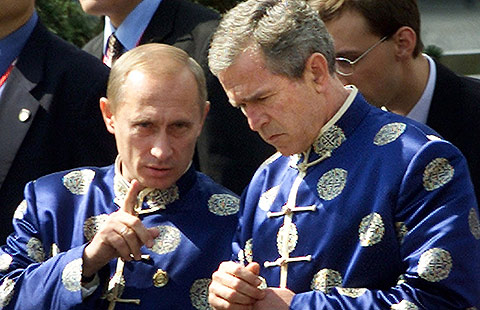
 Traditional dresses add color to APEC
Traditional dresses add color to APEC
 A brief look at prison breaks in China
A brief look at prison breaks in China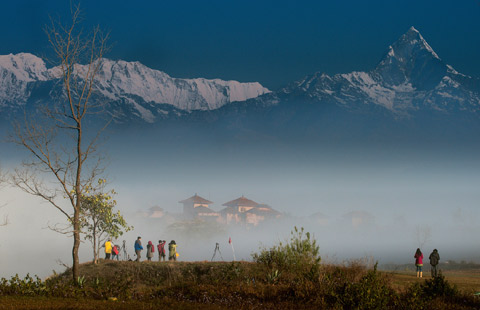
 Chinese airline opens 1st Shanghai-Kathmandu route
Chinese airline opens 1st Shanghai-Kathmandu route
Most Viewed
Editor's Picks
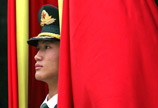
|
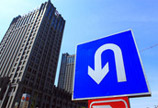
|

|

|

|

|
Today's Top News
Wanted: 500,000 pilots for China aviation
Shaping Asia-Pacific's future
Xi stresses CPC's absolute leadership over army
Foreign TV shows online will need permission
Mass Ebola outbreak 'is unlikely'
S. Korea's plastic surgery paradise lost
China, US to meet on WMD nonproliferation
Danone bolsters China presence with $550m deal
US Weekly

|

|







